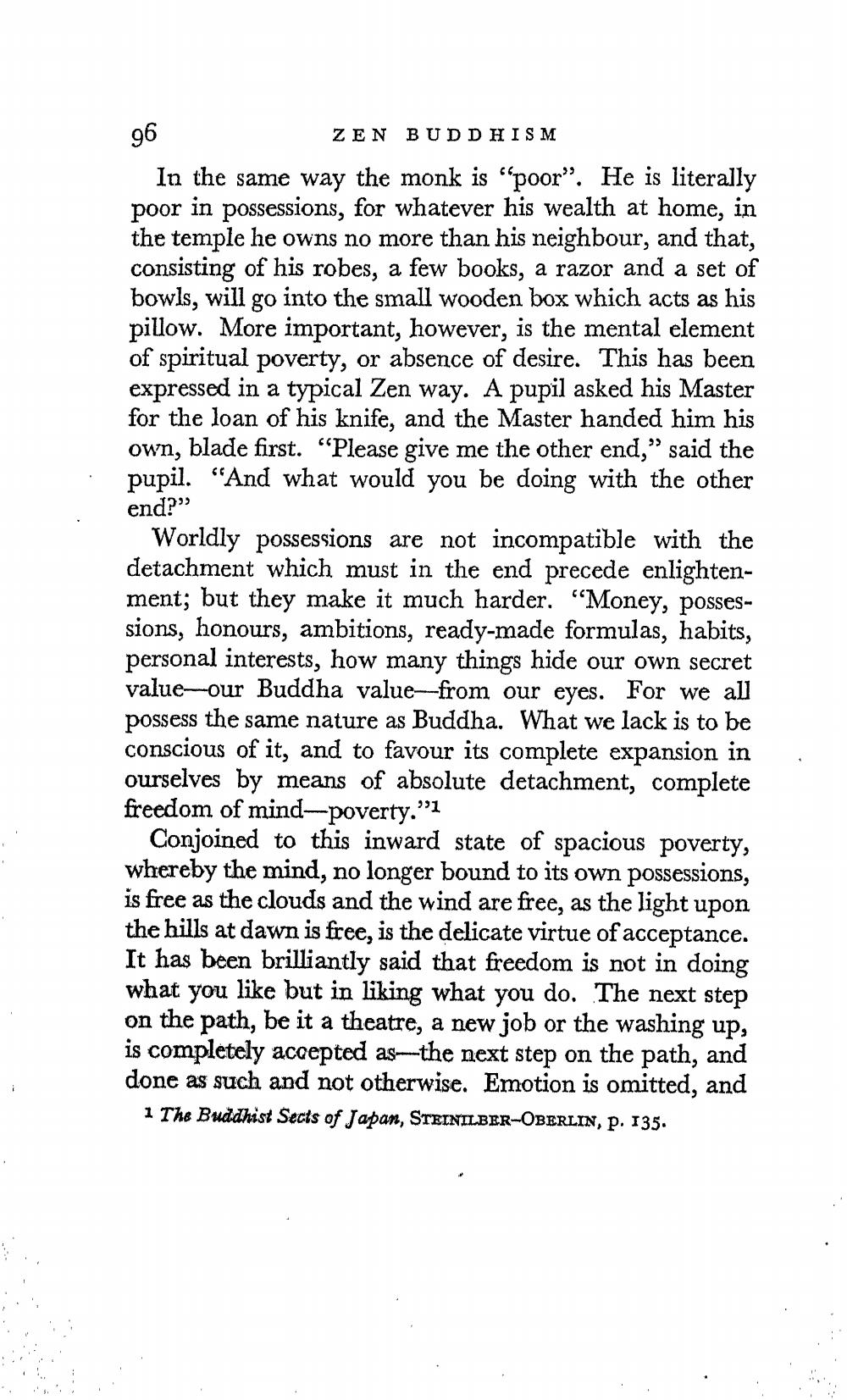________________
96
ZEN BUDDHISM In the same way the monk is "poor”. He is literally poor in possessions, for whatever his wealth at home, in the temple he owns no more than his neighbour, and that, consisting of his robes, a few books, a razor and a set of bowls, will go into the small wooden box which acts as his pillow. More important, however, is the mental element of spiritual poverty, or absence of desire. This has been expressed in a typical Zen way. A pupil asked his Master for the loan of his knife, and the Master handed him his own, blade first. “Please give me the other end," said the pupil. "And what would you be doing with the other
end?"
Worldly possessions are not incompatible with the detachment which must in the end precede enlightenment; but they make it much harder. “Money, possessions, honours, ambitions, ready-made formulas, habits, personal interests, how many things hide our own secret value-our Buddha value-from our eyes. For we all possess the same nature as Buddha. What we lack is to be conscious of it, and to favour its complete expansion in ourselves by means of absolute detachment, complete freedom of mind-poverty."'1
Conjoined to this inward state of spacious poverty, whereby the mind, no longer bound to its own possessions, is free as the clouds and the wind are free, as the light upon the hills at dawn is free, is the delicate virtue of acceptance. It has been brilliantly said that freedom is not in doing what you like but in liking what you do. The next step on the path, be it a theatre, a new job or the washing up, is completely accepted as--the next step on the path, and done as such and not otherwise. Emotion is omitted, and
1 The Buddhist Sects of Japan, STEINILBER-OBERLIN, P. 135.




